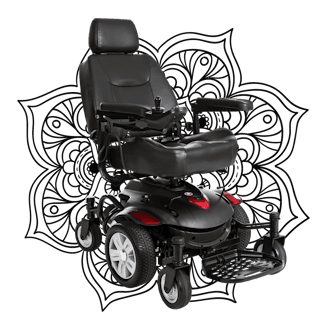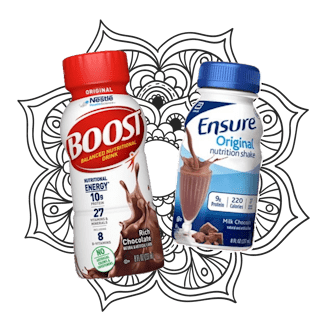contact us
Durable Medical Equipment (or DME) is equipment which meets all of the following requirements:
- Can withstand repeated use
- Is primarily and customarily used to serve a medical purpose
- Is generally not useful to a person in the absence of an illness or injury
- Is appropriate for use in the home
Often a physician will prescribe special equipment for use by a beneficiary in his/her home. The equipment may provide therapeutic benefits or enable the beneficiary to perform certain tasks that s/he is unable to undertake due to certain medical conditions and/or illnesses.
Note: If the item is prescribed after the purchase date, the claim will be denied. In order for the item to be payable under the Medicare benefit, the supplier must have the prescription in hand before the beneficiary receives the item.
A capped rental category consists of any item which meets the following qualifications:
- Not customized
- Not oxygen or oxygen related
- Not routinely purchased
- Not service-intensive
Apart from enabling beneficiaries to spread their share of the rented item’s cost over an extended time period rather than paying in a lump sum. It also ensures that the item is paid for only as long as it is needed. Examples of capped rental items include, but are not limited to, the following items:
- Continuous Positive Airway Pressure (CPAP) devices
- External infusion pumps
- Hospital beds
- Nebulizers
- Wheelchairs
Capped rental means Medicare pays for the total cost of your equipment over a period of 13 months. During that time the equipment is considered a “rental”. If for some reason you no longer need that piece of equipment before the 13-month period is up, you’ll simply return the equipment to us and no more payments will be collected. After 13 months you own the equipment.
It is also worthy to note that beneficiaries considering selling or discarding medicare equipment at the end of their capped rental period should know that medicare only allows one “same or similar” item in a 5 year period. So if you think you’ll ever need it again, it’s probably best to keep it.
A Certificate of Medical Necessity (CMN) is a form required by Medicare authorizing the use of certain durable medical items and equipment prescribed by a physician. This form is to be completed by your doctor or the doctor’s agent. Your supplier will coordinate with your doctor to see that all the necessary information is submitted to Medicare. A change in prescription and/or a change in the beneficiary’s condition will require that an updated certificate be completed and submitted.
Note: The CMN must be completed and returned to the supplier prior to the beneficiary receiving the item. A completed CMN does not guarantee that Medicare will cover the item as medical necessity is determined by the prescriber’s responses to the questions on the CMN.
Below are the download links of the items that need CMN & DIF
Certificate of Medical Necessity (CMN) and DME Information Form (DIF) Forms
- CMS 484
– Oxygen
- CMS 846
– Pneumatic Compression Device
- CMS 847
– Osteogenesis Stimulators
- CMS 848
– Transcutaneous Electrical Nerve Stimulator (TENS)
- CMS 849
– Seat Lift Mechanisms
- CMS 854
– “Section C” Continuation Form
- CMS 10125
– External Infusion Pumps
- CMS 10126
– Enteral and Parenteral Nutrition
Assignment is an agreement between Medicare and health care providers or suppliers of health care equipment. Doctors and suppliers who agree to accept assignment accept the Medicare approved amount as payment in full for Part B services and supplies while beneficiaries are responsible for the coinsurance and deductible amounts. In some cases (such as if you have both Medicare and Medicaid), your health care providers and suppliers must accept assignment. If assignment is not accepted, the beneficiary will have to pay the entire charge at the time of service. Medicare will then send the beneficiary its share of the charge which is equal to 80 percent of Medicare’s allowable amount minus any remaining portion of the beneficiary’s deductible. Medicare approved amounts vary by state.
A deductible is the amount you must pay each year before Medicare begins paying its portion of your medical bill. There are deductibles for both the Part A (Hospital Insurance) and Part B (doctor services) portions of Medicare. Your deductible is taken out of your claims when Medicare receives them. Medicare will not start paying on your claims until you have met your annual deductible. The Medicare deductibles for Part and Part B change on a yearly basis. If you have any questions on the status of your deductible please contact 1-800-MEDICARE (1-800-633-4227).
Some of the items supplied by GoodHope Home Healthcare Inc. included in the Durable Medical Equipment category, but not limited to:
Diabetic supplies (test strips, lancets, and blood glucose monitors)
Enteral Nutrition
Canes, crutches, walkers
Commode chairs
Seat lift mechanisms
Transcutaneous electronic nerve stimulators
**SEE our front page for the list of DMEs we cover
The Medicare Part B deductible is the amount a beneficiary must pay for health care before Medicare begins to pay. The coinsurance is the percent of the Medicare approved amount that the beneficiary has to pay after he or she pays the Part B deductible. In the Original Medicare Plan, the Medicare Part B coinsurance is generally 20 percent of the Medicare approved amount for the item. Medicare law requires a supplier of durable medical equipment to bill Medicare for the supplier’s actual charge. Medicare pays 80 percent of the lesser of the supplier’s actual charge or the fee schedule amount, and the beneficiary pays the remaining 20 percent. It is unlawful for a supplier to routinely waive the Medicare Part B coinsurance and deductible, because that results in Medicare paying 100 percent of the supplier’s actual charge.
Note: If your supplier routinely waives Medicare copayments and deductibles, you should report these actions to the appropriate Durable Medical Equipment Regional Carrier (DMERC) or by contacting the Inspector General’s Hotline at 1-800-HHS-TIPS.
A family member or other person responsible for the beneficiary’s affairs should promptly notify Social Security of the beneficiary’s death by calling SSA toll-free at 1-800-772-1213.
Beneficiaries may report a change of name or address by calling the Social Security Administration at 1-800-772-1213 or by visiting your local field office. Addresses and directions to the Social Security field offices may be obtained from the Social Security Office Locator.
Beneficiaries may now request a replacement red, white, and blue Medicare card online on Social Security’s web site. The card will be mailed within thirty days to the address SSA has on record. If a beneficiary is unable to use the online request to obtain a replacement Medicare card, he or she may call Social Security’s toll-free number, 1-800-772-1213 or visit a local field office.
Quick Contact
“The aim of medicine is to prevent disease and prolong life; the ideal of medicine is to eliminate the need of a physician.”
William J. Mayo
need medical supplies?
call us today
Have your doctor send your medical supplies prescription to us via fax: 919-874-5123. email: [email protected] or call us at phone: 919-522-5221


